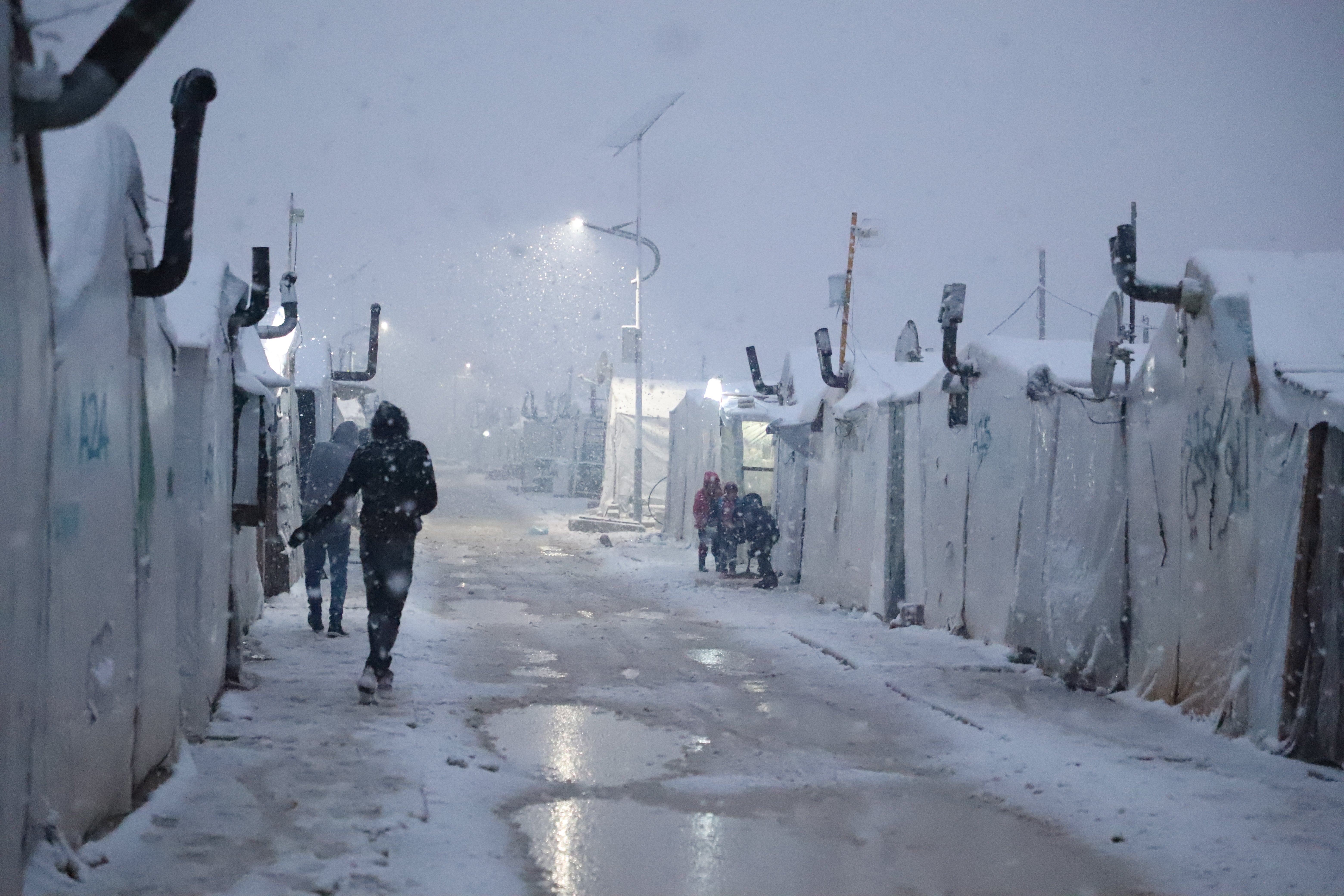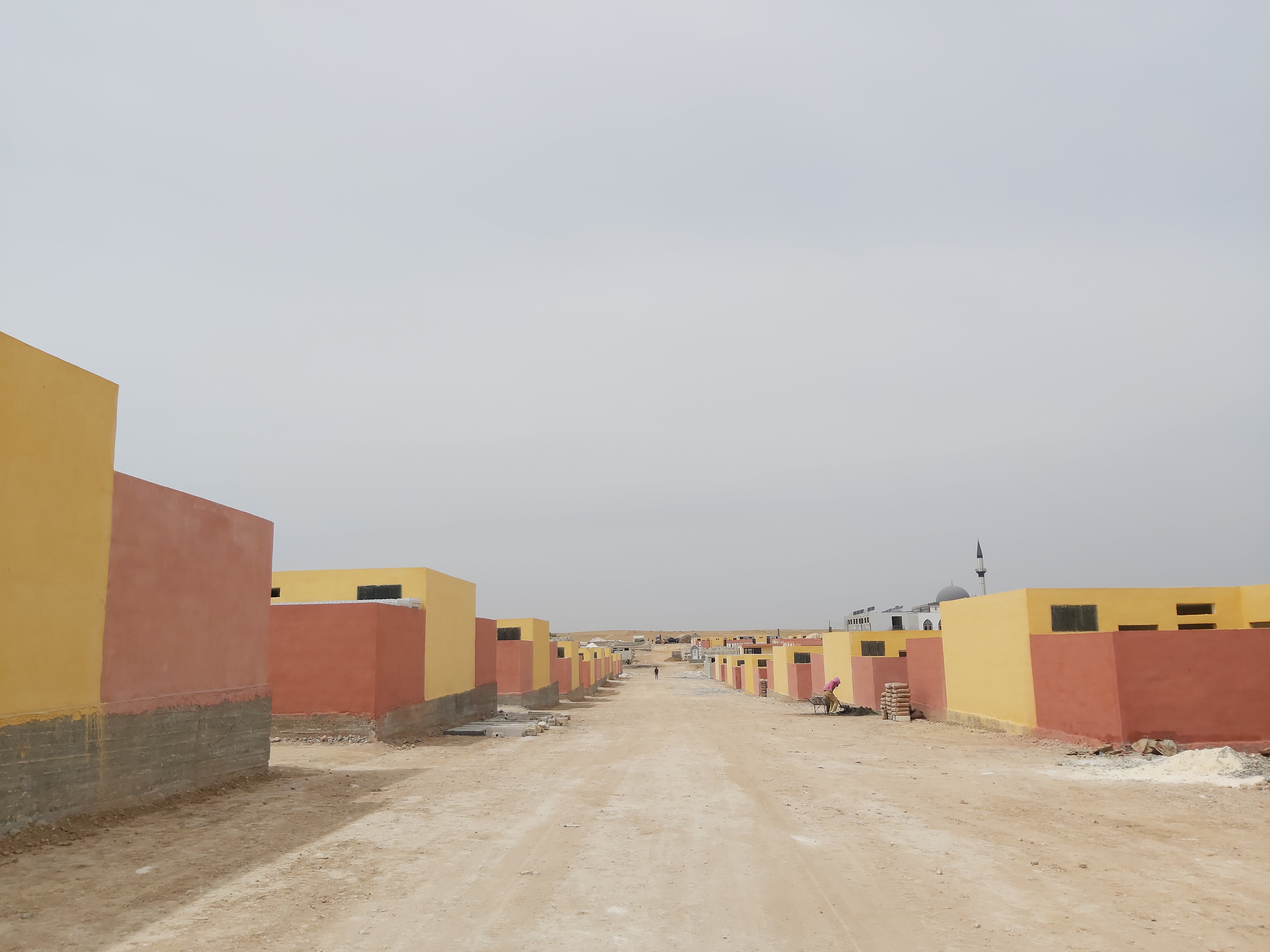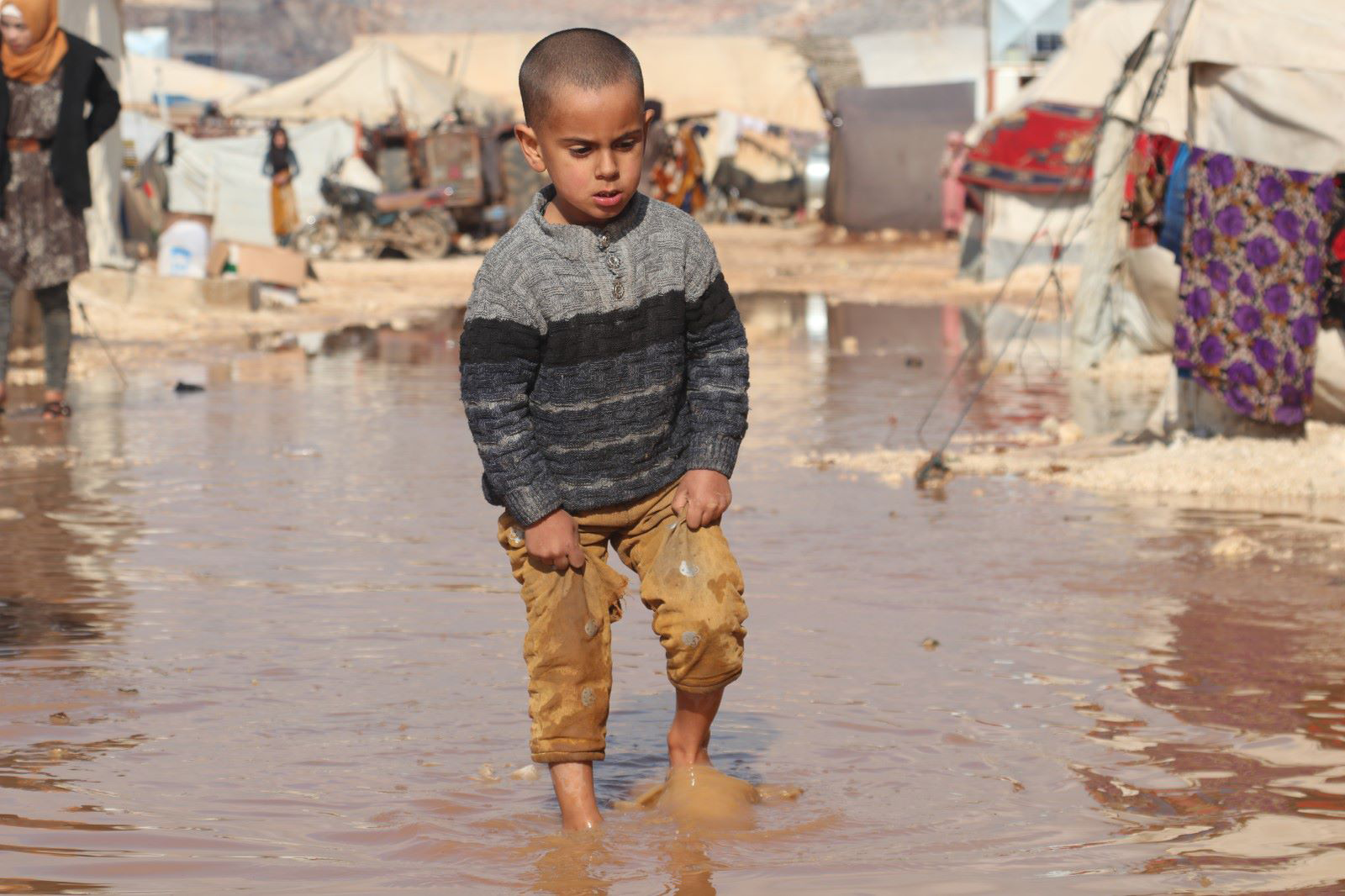War and winter: New town built in Syria to stop people freezing to death
An ambitious charity project is providing proper homes to thousands of Syrians displaced by war and struggling to survive, Tom Ambrose reports

Every winter in northwest Syria, aid workers scramble to offer support and shelter to people who have been uprooted by conflict and are in danger of freezing to death.
But one charity has gone further with an ambitious project to build a new town from scratch – seeking to provide a safe haven for thousands of people in the region who have been forced to live in tents or bombed out buildings during a decade of war.
The task of rebuilding devastated communities has been left to civil society organisations, with little support forthcoming from the Syrian government.
There are about 2.8 million displaced people in northwest Syria, according to the UN, and outbreaks of fighting still occur between government and rebel forces.
The new town – the precise location of which is not being disclosed due to security reasons – is close to Syria’s border with Turkey and will include 1,000 homes for about 6,000 inhabitants, a school, hospital, community centre, park, and mosque.
“It is essential,” said Charles Lawley, head of advocacy at Syria Relief, the UK charity that is working on the £1.6m project with Turkish NGO Ataa Relief.
“There are millions of displaced Syrians who deserve to live in a real home again,” he told The Independent.
“We wanted to build not just homes, but a community that is able to provide for people’s (medical and educational) needs.”
Nearly 13.5 million people across Syria have been driven from their homes since 2011, about half of whom remain displaced within the country while the others have sought refuge abroad.
The Norwegian Refugee Council (NRC) warned in a report this year that another six million people could be uprooted over the next decade if conflict, insecurity and economic deterioration continue unabated.

About 60 per cent of those Syrians uprooted in the northwest of the country live in internally displaced person (IDP) camps, where large families cram into flimsy tents and struggle to stay warm or feed their children.
The once agricultural rural terrain of Idlib province, Syria’s main olive growing district, now has the feel of slums or shanty towns found on the outskirts of teeming cities.
Mr Lawley said “many lives are at risk” during the winter months as many tents are damaged and access to fuel for heating is limited.
“Every year we see people freeze to death, existing health conditions are exacerbated by the cold, and climate change is making flooding and rainfall that ruin tents incredibly common year after year,” he said.
“These problems are only going to become more common as more and more people are displaced due to fighting and they are forced to live in tents, bombed out buildings and inadequate shelter.
Violence is still ongoing in the northwest between Turkish-backed rebels and Syrian forces supported by Russia, despite a ceasefire agreed last year.
Children cannot bear these difficult conditions
Aid worker Adam Kelwick, who has worked with Syria Relief and recently returned from the region, said some displaced Syrians were forced to live in conditions that would not even meet Western animal welfare standards.
“We met so many displaced people from different parts of the country who had lost their homes overnight. We met families living in tents which wouldn’t pass the standards of the RSPCA,” Mr Kelwick said, referring to the British animal charity.
Many people had no source of heat whatsoever, and relied solely on surrounding trees for protection from cold winds, he said.
“This new town will be a huge source of relief for those who’ve lived in the squalid conditions of unofficial camps for the last few years,” he said, adding that many children would experience for the first time what it was like to have a toilet at home.
While the town is still under construction, 100 homes are already complete and 150 further houses are set to be ready by February 2022. They will each have two bedrooms, a kitchen, electricity, running water, and other utilities.
Mr Lawley said Syria Relief had considered ethical and security concerns when deciding to build the town, given that houses are being built in an active conflict zone where civilians have been routinely targeted and countless homes bombed.
Nevertheless, he said the site for the project was “as safe as anywhere can be inside Syria” and that the charity would build more such towns if donor funding was no object.

Mohammed al-Darwish was one of the first to move into the town after he and his family lost everything overnight at the beginning of the civil war.
“Our neighbourhood was attacked and we had to flee and live in tents. Then conflict reached where our tents were and we had to leave again. I left with the shirt on my back and nothing else and we’ve had to survive like this for years since,” he said.
Yet he is one of the fortunate few as most uprooted Syrians remain in camps bracing for another tough winter and unsure when they will have a proper home again.
“My family consists of 14 people, nine of them are children, divided into two tents only,” said Mansi Ghaith Al-Hassoun, who lives in the Kafr Bani IDP camp in Idlib.
“I fear for the children more than I fear for myself and my wife. We are adults who can manage and bear the cold, but children cannot bear these difficult conditions.”






Join our commenting forum
Join thought-provoking conversations, follow other Independent readers and see their replies
Comments